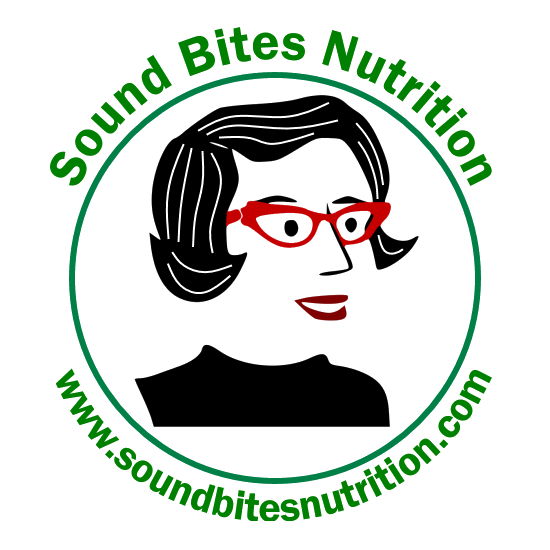National Colorectal Cancer Awareness Month
 March is not only National Nutrition Month it is National Colorectal Cancer Awareness Month. Research has shown that what we eat can influence our risk or reduce our risk of developing colorectal cancer. The relationship between high fiber diets and colorectal cancer is still uncertain: some studies show that a high fiber diet can be protective, some show a risk and others show no effect. However, we do know that a high fiber diet rich in whole grains, fruits and vegetables is good for relieving constipation, lowering cholesterol, controlling blood sugar and helping with weight loss. Other studies showed a strong correlation between red & processed meat and an increased risk of colorectal cancer. And a new study done at Children's Hospital & Research Center Oakland may have identified the ingredient in soy responsible for helping to prevent colorectal cancer.Research indicates some vitamins and minerals may play a role in reducing our risk of some types of cancer. Vitamins A, C and E are antioxidants, nutrients that can reduce the cell-damaging, cancer-causing effects of free radicals. The relationship between several B vitamins and colorectal cancer has resulted in mixed findings. In a review of records from two large studies people with higher blood levels of vitamin B-6 had a lower risk of colorectal cancer. In the same review folic acid and vitamin B-12 weren't linked to the disease. In other studies high levels of folic acid supplements resulted in mixed results – a lower risk, an increased risk or no effect on polyp development. Studies have shown that calcium can protect against developing colorectal cancer. In a recent study participants with high blood levels of vitamin D were less likely to be diagnosed with colorectal cancer.So what does all this research mean? After reviewing all the information the American Cancer Society made the following dietary recommendations:Bite this:
March is not only National Nutrition Month it is National Colorectal Cancer Awareness Month. Research has shown that what we eat can influence our risk or reduce our risk of developing colorectal cancer. The relationship between high fiber diets and colorectal cancer is still uncertain: some studies show that a high fiber diet can be protective, some show a risk and others show no effect. However, we do know that a high fiber diet rich in whole grains, fruits and vegetables is good for relieving constipation, lowering cholesterol, controlling blood sugar and helping with weight loss. Other studies showed a strong correlation between red & processed meat and an increased risk of colorectal cancer. And a new study done at Children's Hospital & Research Center Oakland may have identified the ingredient in soy responsible for helping to prevent colorectal cancer.Research indicates some vitamins and minerals may play a role in reducing our risk of some types of cancer. Vitamins A, C and E are antioxidants, nutrients that can reduce the cell-damaging, cancer-causing effects of free radicals. The relationship between several B vitamins and colorectal cancer has resulted in mixed findings. In a review of records from two large studies people with higher blood levels of vitamin B-6 had a lower risk of colorectal cancer. In the same review folic acid and vitamin B-12 weren't linked to the disease. In other studies high levels of folic acid supplements resulted in mixed results – a lower risk, an increased risk or no effect on polyp development. Studies have shown that calcium can protect against developing colorectal cancer. In a recent study participants with high blood levels of vitamin D were less likely to be diagnosed with colorectal cancer.So what does all this research mean? After reviewing all the information the American Cancer Society made the following dietary recommendations:Bite this:
- Beans, peas & legumes are high in protein, fiber, B vitamins and calcium while being very low in calories and fat. Combine with a whole grain for a great meatless meal.
- Calcium-rich foods that provide the RDA for your age & gender. In addition to beans and green vegetables, low fat dairy foods are excellent sources.
- Fruits are high in fiber, vitamins and minerals. Eat a variety of fruits to maximize the nutrients.
- Soy contains something called sphingadienes (SD) – a molecule that can cause the death of cells (including cancer cells).
- Vegetables are high in fiber, vitamins and minerals. Eat at least 5 daily servings of colorful vegetables.
- Whole grains are high in fiber, vitamins and minerals. They may not prevent colorectal cancer but they help with everything else.
Not that:
- Alcoholic beverages should be limited to the US Dietary Guidelines (no more than 1 alcoholic beverage for women and two a day for men). Higher alcoholic consumption has been linked to an increased risk of many kinds of cancer, including colorectal cancer.
- Extra calories that lead to weight gain. Obesity increases the risk of developing colorectal cancer, particularly in men.
- Processed meat consumption is linked to an increased risk of colorectal cancer. Over 10 years, a high consumption of processed meat (defined as 1 ounce 5-6 times for week for men & 1 ounce 2-3 times per week for women) increased the risk of colorectal cancer by 50%.
- Red meat consumption increases the risk of colorectal cancer. Over 10 years, a high consumption of red meat (defined as 3 ounces daily for men; 2 ounces daily for women) increased the risk of colorectal cancer by 30 - 40%.
.
